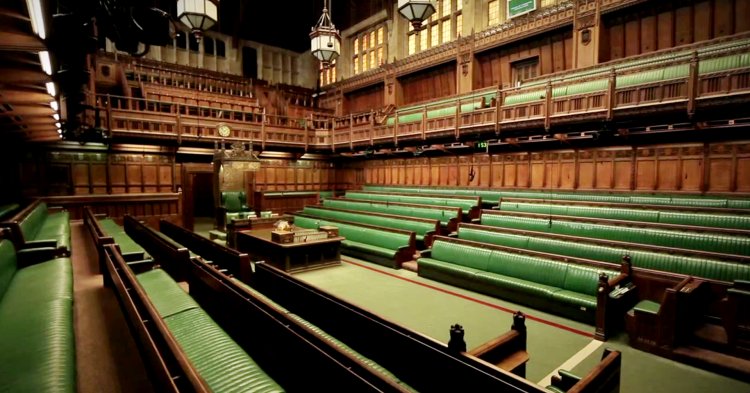What does ‘reneging on the deal’ involve?
On Monday 7th September, Boris Johnson announced that the UK would walk away from trade talks if an agreement is not reached by 15th October and that a no-deal Brexit could be on the cards. For those of us who have been unfortunate enough to have followed the Brexit debacle for some time, this was the least surprising part; after seven notoriously unsuccessful rounds, little hope has so far been pinned on the latest round of Brexit talks which began in London yesterday morning. The announcement that left parts of the international community gasping was the government’s announcement that it is set to propose a bill that would override parts of the Withdrawal Agreement that currently stands. As the Withdrawal Agreement was signed by both the UK and the EU, and approved by their respective parliaments, it became international law.
The “internal market bill”, which is set to be presented by the government today, would attempt to reinterpret clauses already agreed regarding customs arrangements in Northern Ireland. As specified in the Withdrawal Agreement, Northern Ireland would adhere to some EU regulations after the transition period ends to prevent a hard border on the island of Ireland, effectively remaining part of the EU’s customs union for goods. However, the government wishes to have more control over Northern Ireland after 31st December 2020, the date the transition phase is due to end.
Perhaps even more astonishing than the bill itself is the fact that the government has admitted that the bill it is proposing breaks international law. The Secretary for Northern Ireland Brandon Lewis, speaking in Parliament yesterday, said that: “Yes, this does break international law in a very specific and limited way.” Critics and journalists took to Twitter last night to say that a government publicly announcing that it will break international law is tantamount to becoming a rogue state. However, the government maintains this is a necessary move in case trade talks fail.
Incredulity at home….
Johnson’s announcement was met with more than raised eyebrows, not only from the general public but also from other politicians, who are understandably concerned about the consequences that may result from his backtracking. Johnson has been widely criticised by Labour MPs for misleading people in the general election, as he repeatedly hailed his Brexit deal as “oven ready”, with the famous ‘Get Brexit Done’ tagline plastered all over his campaign. Failing to respect the already established deal and hastily stating that a no-deal Brexit would be a “good outcome” makes the fragility of the initial deal plain to see - after all, he negotiated it himself.
His actions appear to have caused fresh rebellion and rebuke in the civil service, with chief legal advisor Jonathan Jones quitting yesterday (thus joining the other five civil servants who have resigned already this year), which suggests that government lawyers predict that the government is indeed about to break the law.
Additionally, it is clear that only the extreme wing of the Conservative Party supports overriding the Withdrawal Agreement. During a debate in the House of Commons, Theresa May alluded to the very real risk of further damage to the country’s international credibility: “How can the government reassure future international partners that the UK can be trusted to abide by the legal obligations of the agreements it signs?” she demanded. The Secretary for Northern Ireland was unable to answer her in a convincing manner.
Leaders in the business world have expressed concern regarding a no-deal Brexit that Johnson seems to think will “be a good outcome”. They have warned that securing a deal is essential for economic recovery after the coronavirus pandemic and that many businesses are not equipped to deal with the consequences of a no-deal Brexit. Director of food and sustainability at the British Retail Consortium Andrew Opie said that “A no-deal would be the worst outcome for consumers” as tariffs would be added to the cost of food in the UK. After years of poor performance on currency markets due to the uncertainty over leaving the single market, the pound fell again by 1% yesterday against the dollar and the euro.
...and abroad
EU leaders have reacted to the announcement by issuing thinly veined warnings to the British government. President of the European Commission Ursula von der Leyen took to social media to give her views (the following tweet was also shared by negotiations chief Michel Barnier):
I trust the British government to implement the Withdrawal Agreement, an obligation under international law & prerequisite for any future partnership. Protocol on Ireland/Northern Ireland is essential to protect peace and stability on the island & integrity of the single market.
— Ursula von der Leyen (@vonderleyen) September 7, 2020
Meanwhile, Guy Verhofstadt, former leader of the liberal group within the European Parliament and often outspoken with regard to Brexit, tweeted:
Brexit is damaging enough. Any move by Mr Johnson to undermine the Withdrawal Agreement would have painful implications for the UK's global reputation & do great damage to EU & UK citizens alike. I hope he will recommit to the obligations he has made under international law. 🇪🇺🇬🇧
— Guy Verhofstadt (@guyverhofstadt) September 7, 2020
Get Brexit Done - illegally
Both the threat of walking away from the talks, and that of reneging on the existing Withdrawal Agreement, indicate that Johnson is attempting to put pressure on the EU, in order to “Get Brexit Done” as he so often promised. This will come to no avail, as the EU has remained glued to its principles throughout the process. As he has recently come under fire regarding his poor handling of Covid-19, Johnson is trying to salvage his reputation with Conservative MPs by fulfilling - at least on the surface - his headline campaign promise as a matter of political survival. Either way, it is clear that Johnson is ready to do whatever is necessary to complete the divorce from the EU in a manner that is politically palatable to those who are closest to him - even if that means breaking the law. It remains to be seen if enough of his own MPs will support him in doing so.



Follow the comments: |
|
